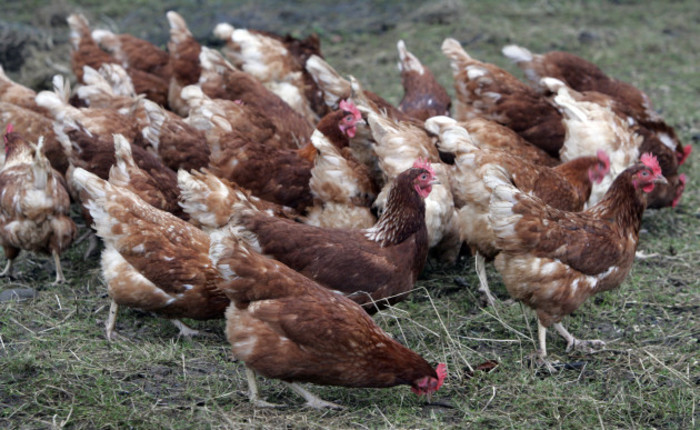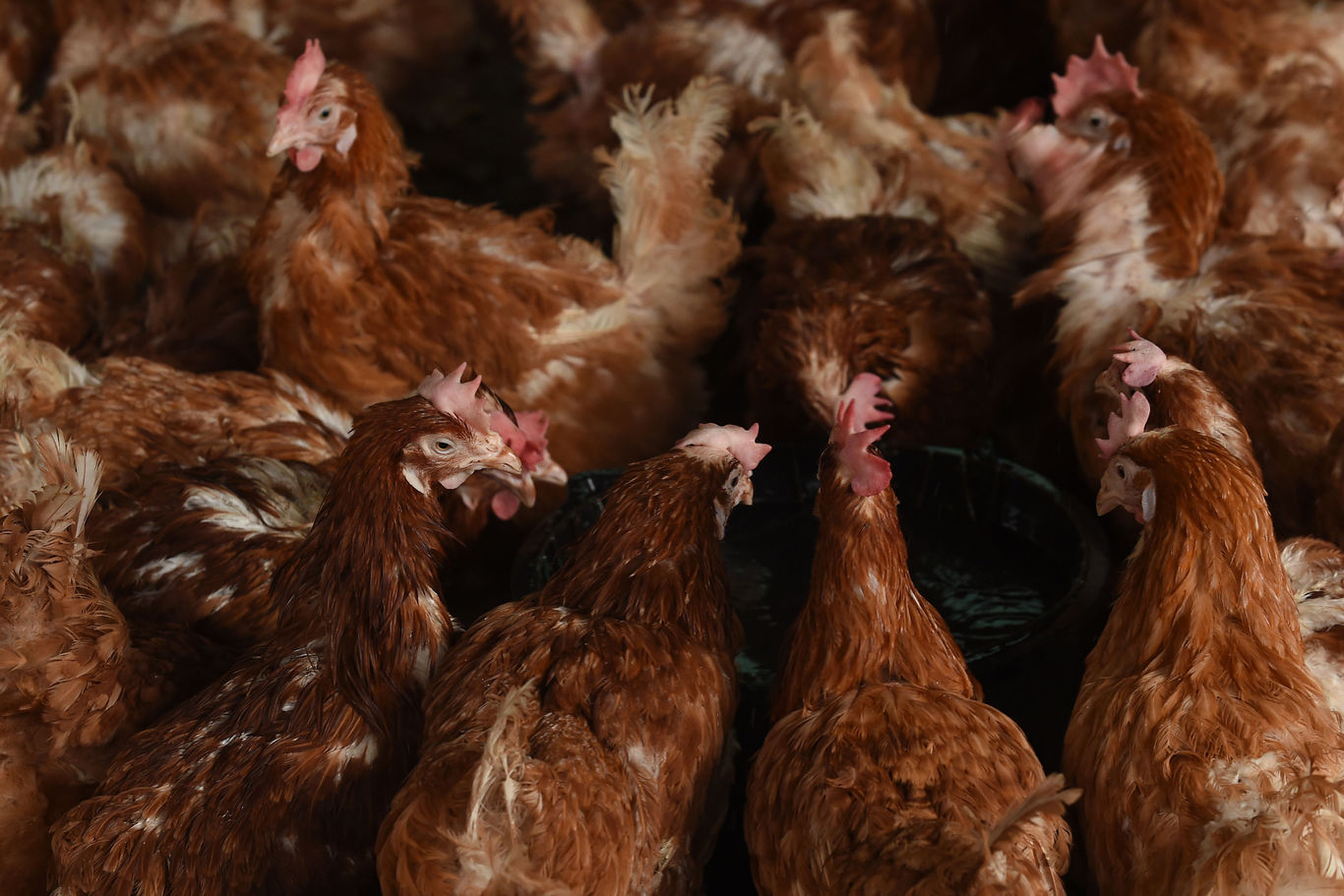Why thousands of Irish chickens could soon be stripped of their free-range status
Next Friday is D-Day for the designation, which applies to nearly half of all local eggs.
A DEADLINE IS looming next week for thousands of Irish poultry farmers that could see them stripped of their free-range supplier status.
Under a compulsory housing order, which will remain in place until 30 April, Irish free-range chicken farmers have been forced to keep their chickens inside for nearly three months after numerous cases of bird flu were found in Ireland.
To earn their free-range badge, poultry farmers are required to allow their chickens to roam freely outdoors for at least a part of each day. However, since the housing order was put in place, all Irish poultry has been kept indoors.
Despite not meeting the criteria for free-range, a 12-week grace period has allowed Irish poultry farmers to still market their products as such.
However, EU Agriculture Commissioner Phil Hogan has opted not to extend the exemption period, which means Irish farmers will lose their free-range status next week.
The free-range designation is an important element in Irish egg production. Roughly 40% of the total egg output in Ireland comes from free-range flocks, while they also account for about 5% of poultry meat production.
 Phil Hogan
Phil Hogan
How has this happened?
The issue stems from the introduction of a compulsory housing order for Irish poultry in response to an outbreak of bird flu in the UK late last year.
According to the Department of Agriculture, this was set to expire on 16 March, however the housing order has been extended to 30 April due to the continued findings of bird flu in wild birds in Ireland.
The order was put in place to try and curb the spread of the H1N8 virus in bird flocks nationwide. However, the virus has since been detected in both Cork and Tipperary.
Since the outbreak, Irish free-range chickens have been kept indoors and accordingly have not met the free-range criteria during this period.
Under EU rules, products can still be marketed as ‘free-range’ for a 12-week period after the introduction of a housing order. However, that time is nearly up.
What are the ramifications?
If everything stays the same, thousands of Irish farmers will lose their rights to claim free-range status from 17 March – and they will instead be required to label their products as ‘barn-reared’ or ‘barn eggs’.
This means poultry packaging will need to be amended to reflect the new classification of the products.
Sinn Féin MEP Matt Carthy, who is a member of the European Parliament’s agriculture committee, has argued that the loss of the free-range stamp will affect the price farmers can command for their produce and also affect consumer confidence in Irish poultry.
He also said farmers should not have to worry about relabelling costs and recommended that the Department of Agriculture should stump up the fees for changing the packaging and produce “an official overlay sticker”.
Last month, Minister of State Andrew Doyle told the Seanad that a new label overlay is being considered to protect the status of Irish ‘free-range’ eggs.
“One option is an overlay label that explains the context. An overlay for free range stock temporarily confined could explain the position to the consumer,” he said.
The Irish Farmers Journal has reported that loss of free-range status could cost Irish farms in the region of €20,000 a month.

Where from here?
Northern Ireland has announced it will lift its compulsory housing order on 16 March, however Ireland has opted to extend the requirement for Irish farmers to keep their flocks indoors.
A lot of English farmers have already lost their free-range designations since the 12-week grace period there has already ended. Now all formerly free-range egg packages carry a sticker that has the following disclaimer:
“Eggs laid by hens temporarily housed in barns for their welfare”.
However, retailers are still charging a premium price for free-range eggs in stock.
Irish farmers will be forced down a similar route next week and could have to pay the costs for new packaging with no commitment from the government to offset the cost.
Meanwhile, it has been hoped that the end of the avian migratory season would reduce the risk of bird flu in Ireland. But with the latest outbreaks showing up in resident species, controlling the disease is likely to be an ongoing issue for Irish farmers.
Carthy said he wrote to the commissioner and urged for a special provision that would allow Irish poultry farmers in Ireland to retain their ‘free-range’ status during the compulsory housing order.
Update: This piece has been updated to include a statement from the Department of Agriculture that announced the extension of the housing order to 30 April





